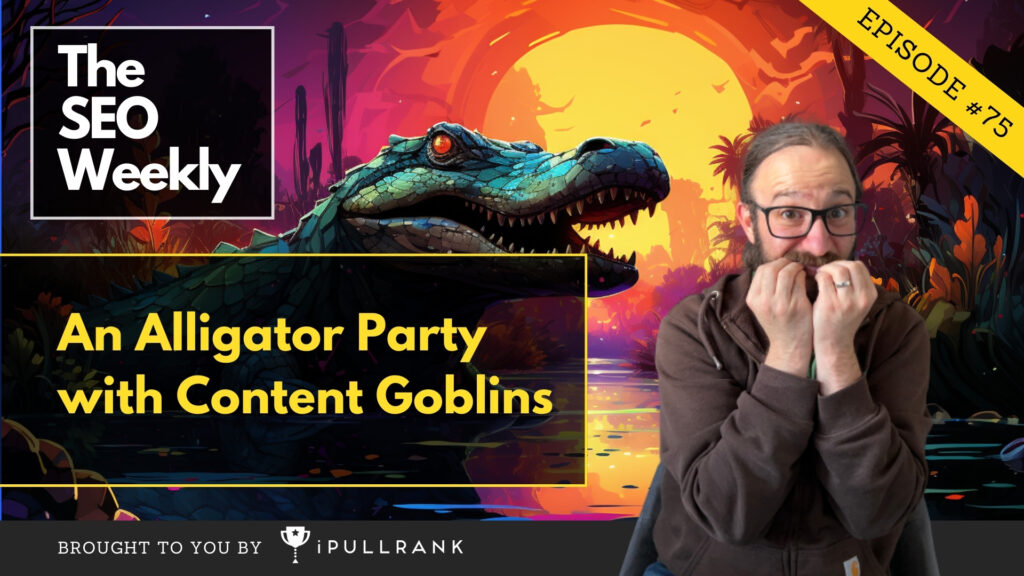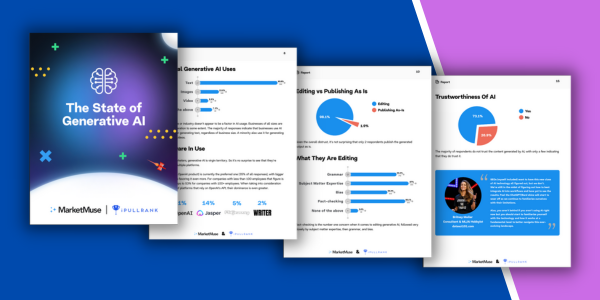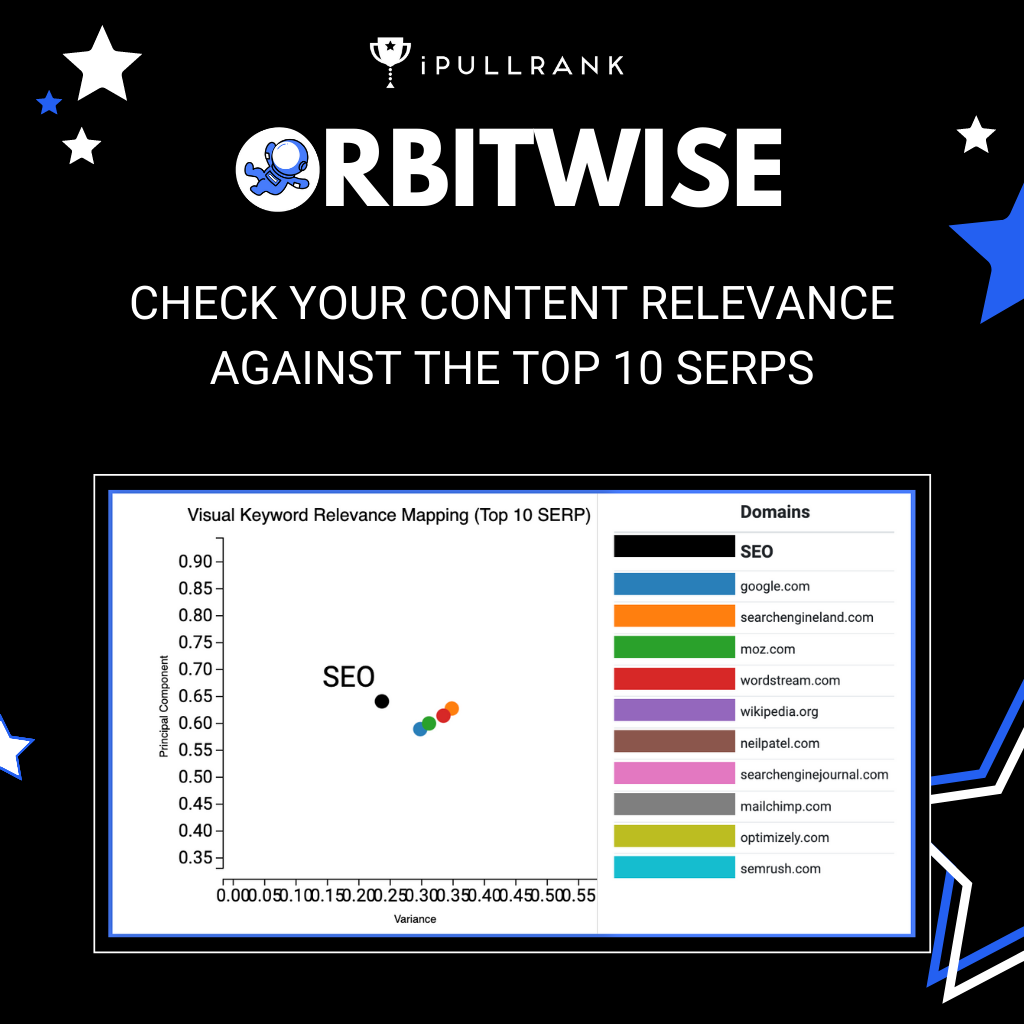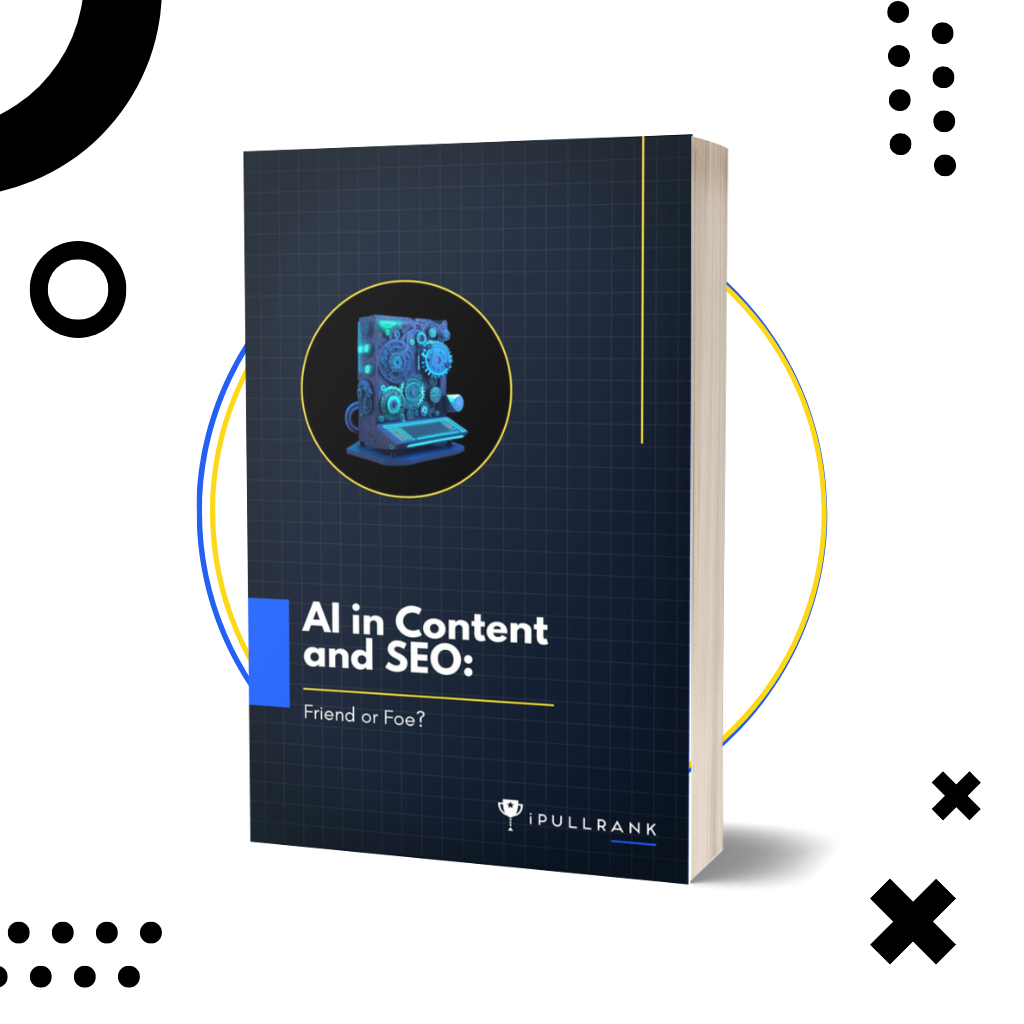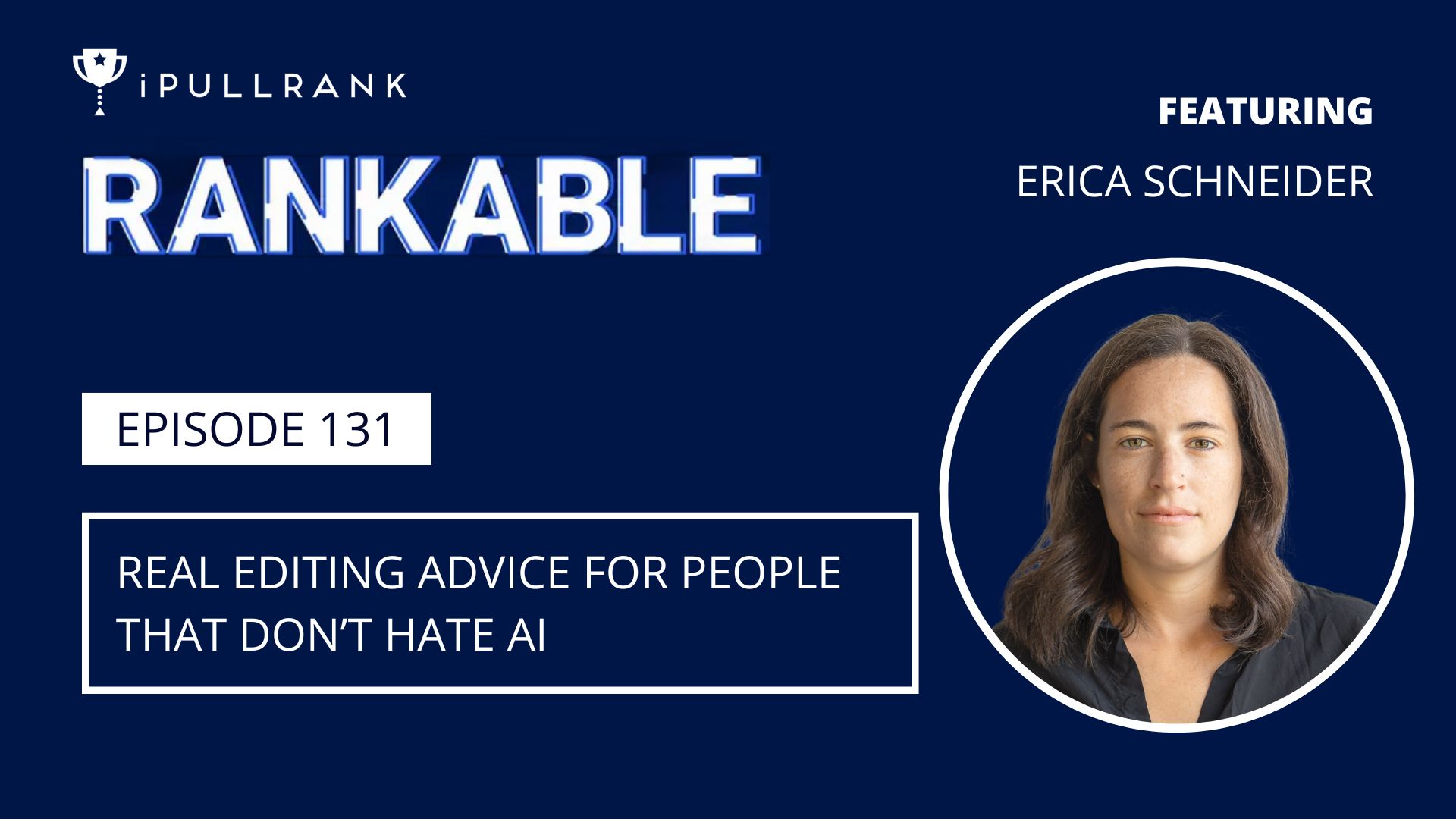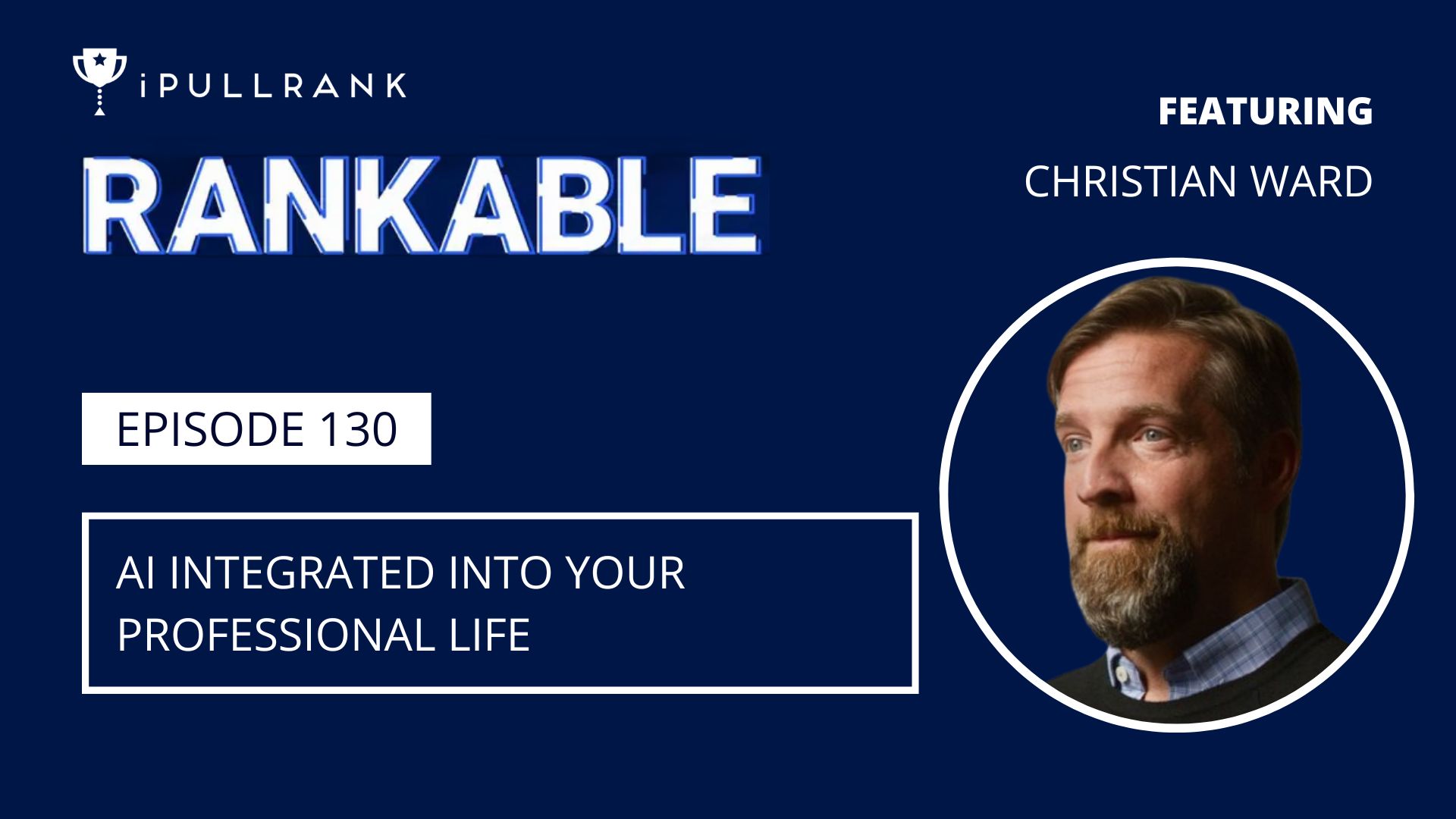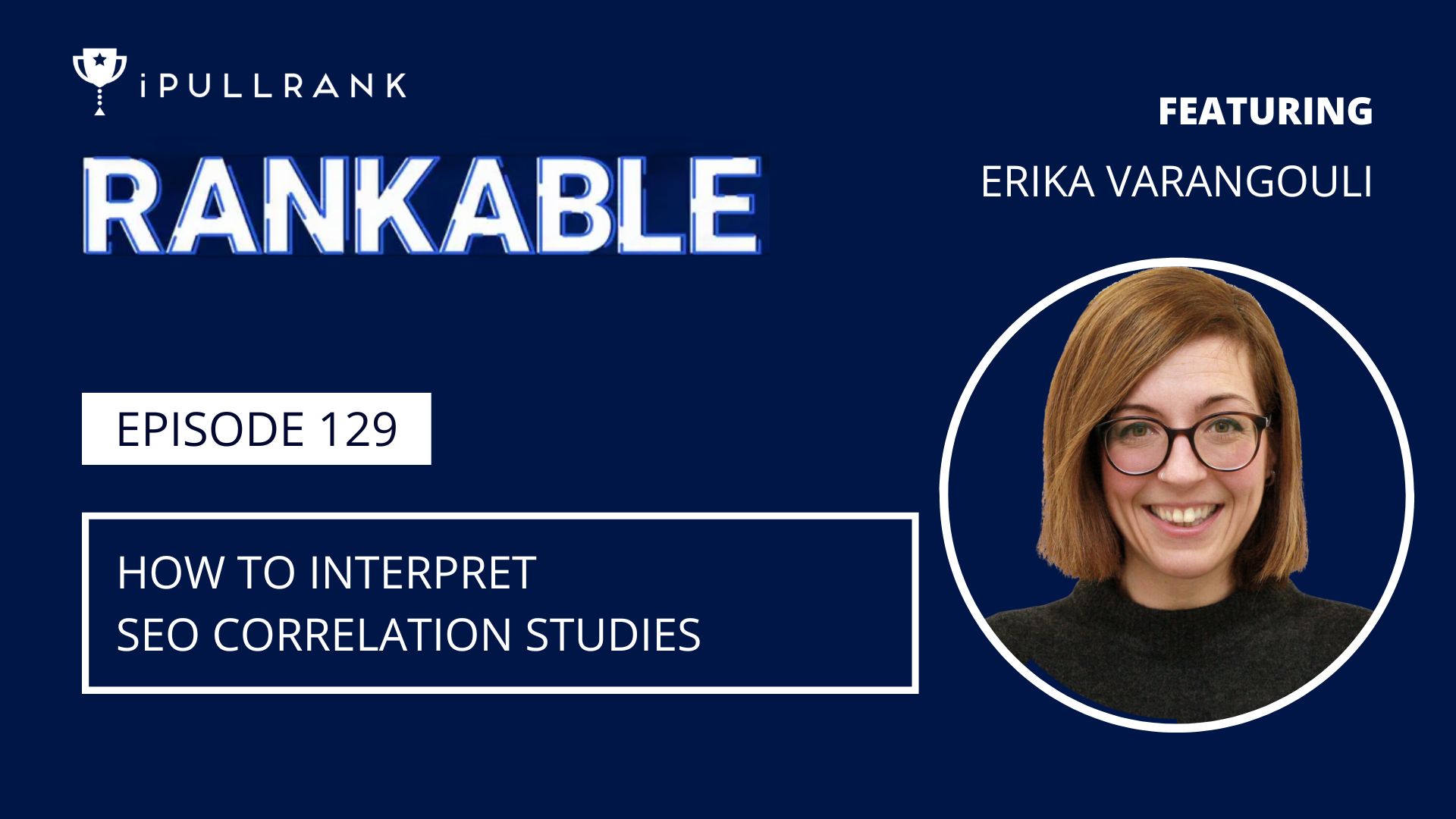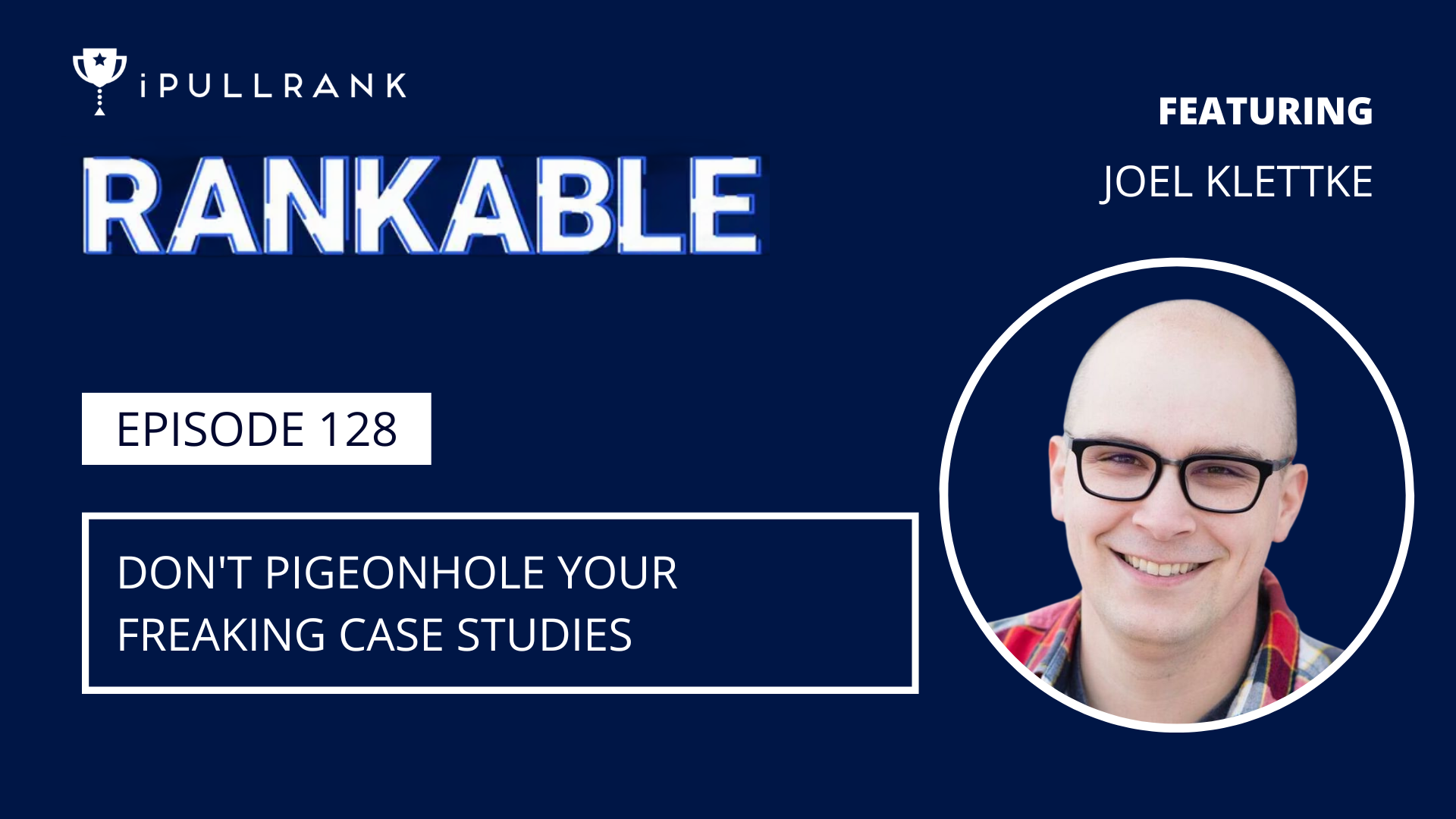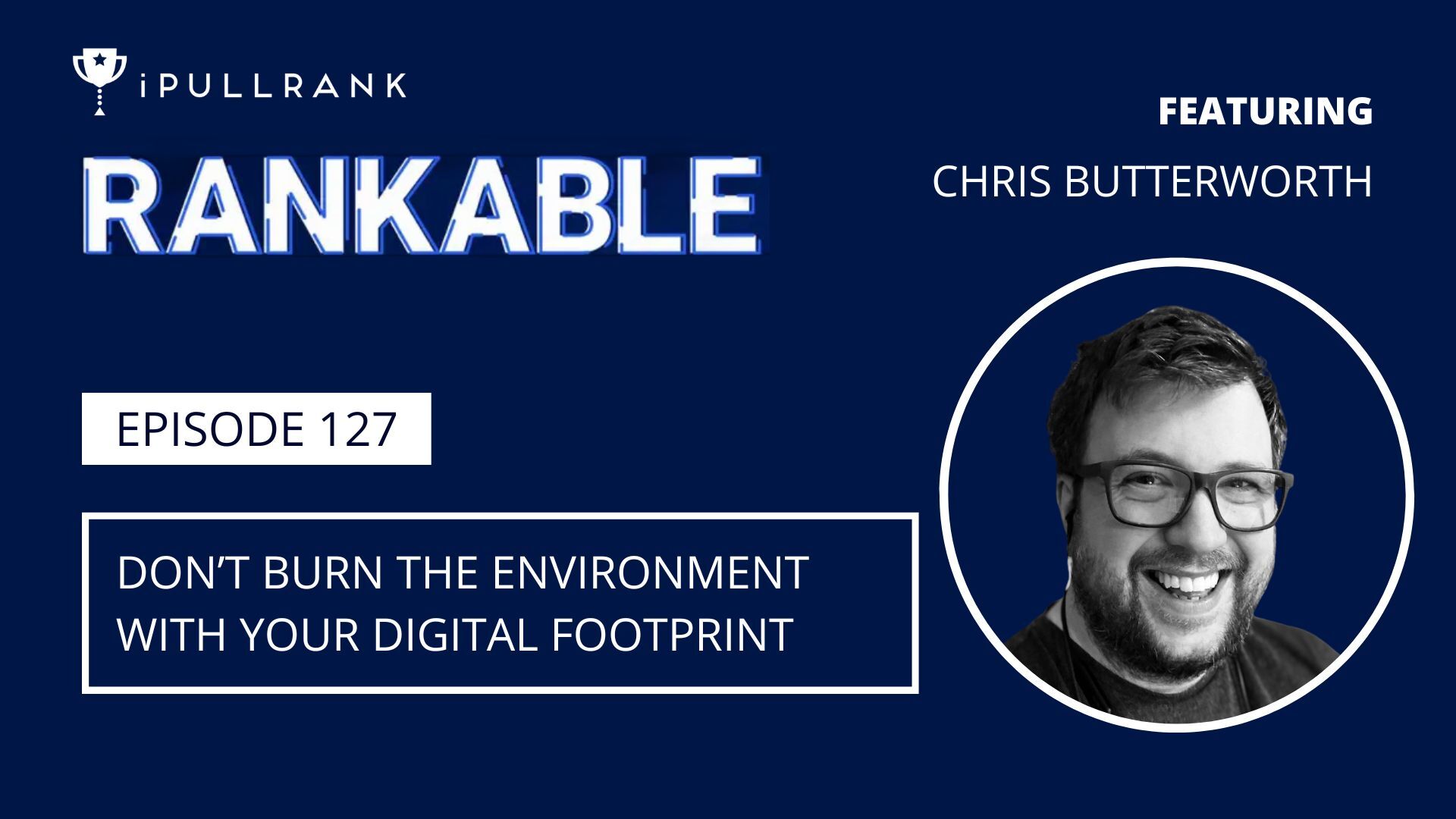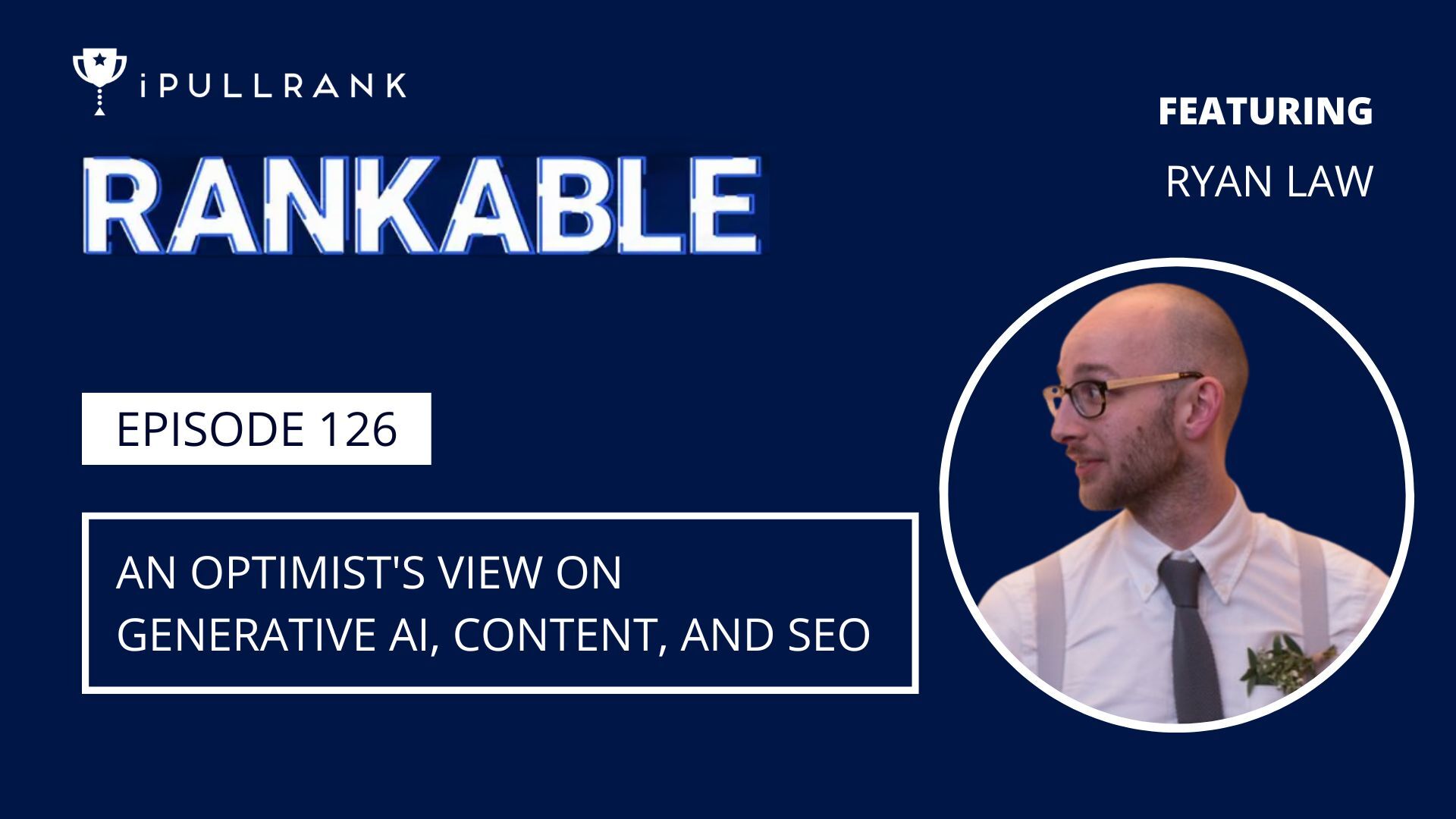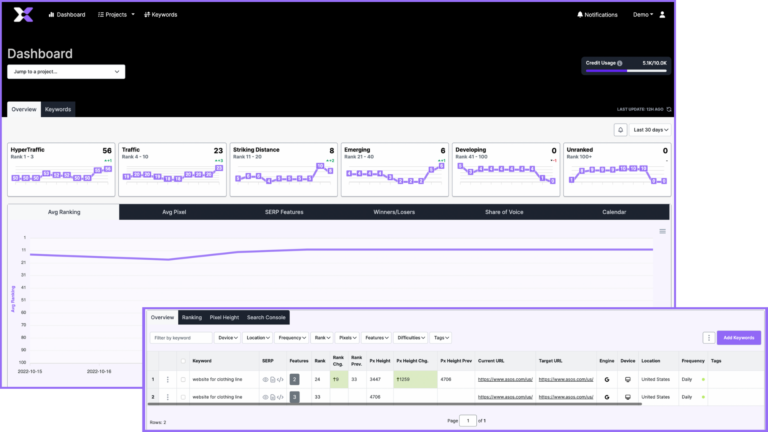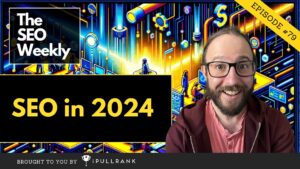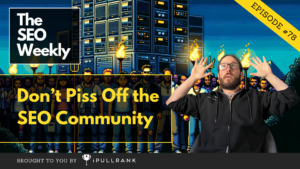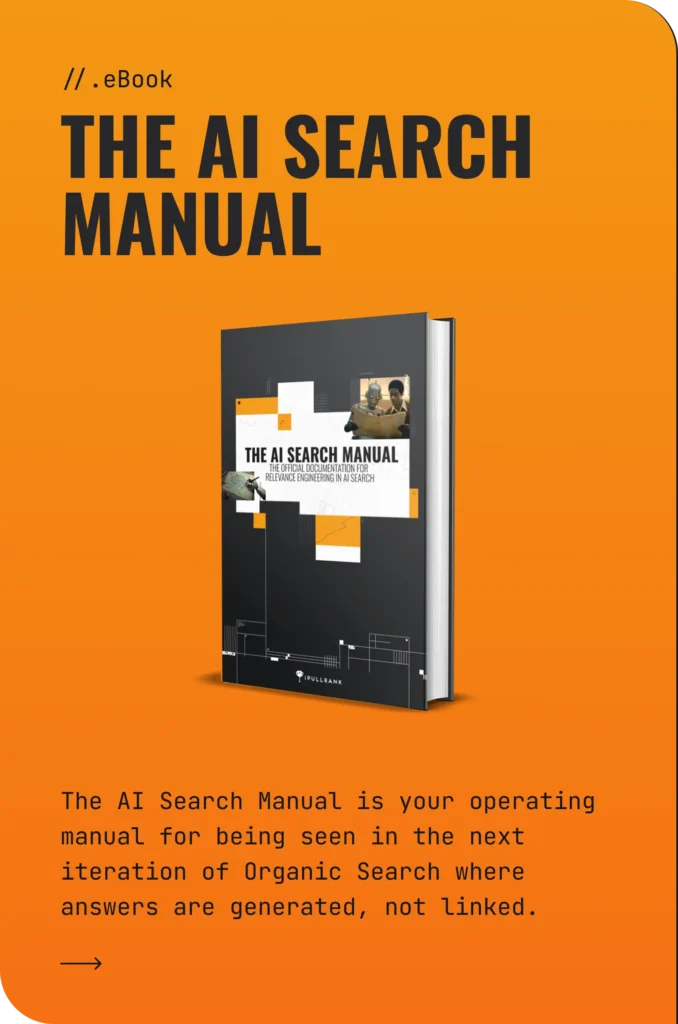The SEO Weekly
An Alligator Party with Content Goblins - Episode 75
Where queries are weird, advice is controversial, and everything depends.
We’re back after a 3-month hiatus and a ton has happened. In this recap, we get you caught up on the major algorithm updates that have been rolled out since August.
We also discussed how Google’s SGE is a threat to organic search and what you can do to protect yourself.
Also:
- Query Expansion
- A Knowledge Graph Update
- Optimizing for Google Discover traffic
Host: Garrett Sussman | Demand Generation Manager
LAST CHANCE: GET YOUR IPULLRANK DATA-BACKED KEYWORD PORTFOLIO
$10,000 ($15K after 12/16)
First Come, First Served
Included in the offer:
- A Refreshed Data-Backed Keyword Portfolio and Presentation (up to 5,000 keywords)
- Topic Cluster Targeting
- Content Ideation Targeting For Each Cluster
- 3 Monthly Snapshots of iPullRank’s New Rank Tracker – ExactScience
THE STATE OF GENERATIVE AI Report
We surveyed over 100 marketing leaders on their perspectives on generative AI in SEO and have analyzed the findings so that you can see where you stand among your peers and competitors.
Show notes / References:
Google/SERP Updates:
Google Updates and Incidents over the Past 3 Months via the Search Status Dashboard – Google
LATE BREAKING NEWS. A 3rd CORE UPDATE.
Today we released the November 2023 core update. We'll update our ranking release history page when the rollout is complete: https://t.co/hgjEkfpbA2
— Google Search Central (@googlesearchc) November 2, 2023
Related to this, we’ve posted a Q&A on Google Search updates as a refresher about how updates work: https://t.co/N5p3KsJ0ta
Google’s Broad Core Algorithm Updates: Important Points And Frequently Answered Questions For Site Owners And SEOs – Glenn Gabe
Glenn points out that recent Google updates are causing significant ranking fluctuations, advising against hasty content changes and emphasizing a comprehensive approach to site improvement. He recommends a “kitchen sink” strategy, focusing on overall user experience and technical SEO, and suggests patience, as results may only appear after subsequent updates.
- Analyze your site’s performance comprehensively; use delta reports to discern whether issues stem from content relevancy, user intent shifts, or genuine quality deficits.
- Avoid the quick fix of deleting old or short content; instead, assess if it still adds value to your audience.
- Implement wide-ranging improvements across UX, technical SEO, and content to step out of Google’s quality gray zone – and stay there.
Inside Google’s massive 2023 E-E-A-T Knowledge Graph update – Jason Barnard – SEL
Google’s July 2023 Knowledge Graph update has notably expanded Person entities and pivoted towards enhanced E-E-A-T signals, indicating a new focus on accurately classifying individuals’ expertise and authority. With a decrease in reliance on Wikipedia, marketers must adapt their SEO strategies accordingly.
Based on the article, here are three actionable steps:
- Prioritize creating high-quality, authoritative content that showcases expertise and trustworthiness.
- Develop organic knowledge panels for individuals and businesses without depending on Wikipedia or other third-party sources.
- Monitor and adjust the titles and subtitles associated with entities to align with Google’s updated classification for better search visibility.
Google says mobile-first indexing is complete after almost 7 years – Barry Schwartz – Search Engine Land
Google has completed its transition to mobile-first indexing after seven years, signaling the end of its traditional desktop crawling. For marketers, this emphasizes the necessity of optimizing websites for mobile devices to maintain search rankings. It’s crucial to audit your site for mobile compatibility issues, like blocked resources or redirect errors, to ensure visibility in Google’s search results.
Mike King predicted that this was coming, it just took Google a long time.
Google Announces a Bug for Discover Traffic since early October
We found a bug with how our Oct. 2023 core update was applied to Discover, which has now been corrected. Some sites may see an increase in Discover-related traffic, as a result. Start and end time for this issue is now on the Search Status Dashboard: https://t.co/xjpKeJE6lB
— Google Search Central (@googlesearchc) November 1, 2023
How to Drive Traffic in Google Discover: The Ultimate Guide – Lily Ray – Moz
Google Discover offers a unique channel for driving traffic, leveraging user interests to deliver content on mobile devices. While unpredictable, sites with timely and engaging content can tap into this source, where traditional SEO tactics do not apply.
Key discover tips from the article:
- Ensure your content includes high-quality images of at least 1200 px width to meet Google’s visual requirements for Discover.
- Gauge and align your content with your audience’s interests to increase its relevance and potential visibility on Discover.
- Regularly check Google Search Console to understand Discover traffic patterns and make informed adjustments to your strategy.
How Search Generative Experience works and why retrieval-augmented generation is our future – Mike King – Search Engine Land
In the SEL article and follow-up recorded webinar, Michael King provides an analysis of how Google’s AI Snapshot could influence organic search results, the technology that powers it, and strategies for adapting to it.
They both include:
- The role of AI Snapshot in Google’s Search Generative Experience
- Insights from data regarding AI Snapshot
- Implications for your website’s organic search visibility
- Tips for adjusting to the updated Google Search framework
You can get your own SGE Threat Report and try Raggle.
How Google Changes Your Searches (A Study of 10,000 Queries) – Dr. Peter Meyers – Moz
Dr. Pete analyzes Google’s nuanced approach to refining search queries is the focus of an analysis of 10,000 searches, showing the search engine’s efforts to align results with searcher intent rather than just matching keywords. With evidence from the MozCast research set, it is evident that Google frequently adjusts queries, transparently in about 5% of cases, to guide users toward more accurate results.
The key takeaway for marketers: stay attuned to Google’s evolving interpretation of user intent. The practical step is to optimize for relevance and clarity, ensuring content meets the potential needs of searchers, which may transcend exact keyword matching.
The people who ruined the internet – Amanda Chicago Lewis – The Verge
In an article by The Verge, the portrayal of SEO experts leaned towards the negative, painting them as opportunists at an alligator-themed event—used as a metaphor for attention-grabbing tactics. The story suggested that these individuals are mainly focused on profit, using the internet as a tool for personal gain. Interviews with professionals in the field seem to have been chosen and quoted to fit this particular angle. Additionally, the article included a portrayal of Danny Sullivan that some readers felt was misrepresented, showing him in a less favorable light and contributing to the article’s critical stance on the SEO industry.
What the Romans ever done for us aka the contribution of SEO to The Verge and other news websites – Gianluca Fiorelli
In a revealing reply article by Gianluca Fiorelli, the spotlight turns to The Verge’s heavy reliance on SEO for attracting visitors, a stark contrast to their own critical views on the industry. The numbers tell a different story from their narrative, with SEO ushering in a significant 26.2 million visits in September alone, equating to a potential $31 million in ad spending avoided.
Ethical Considerations for LLMs and Generative AI – Britney Muller – Episode 121 – Rankable
In the latest episode of the Rankable Podcast, Britney Muller demystifies the complexities of Large Language Models (LLMs) and Generative AI, highlighting the need for AI education, addressing trust issues, and the ethical considerations surrounding this technology. With insights on mitigating biases and maximizing AI’s beneficial applications, the conversation steers towards actionable strategies for responsible AI use.
The standout message from Muller’s insights is the importance of understanding and addressing AI’s inherent biases to unlock its full potential responsibly. Marketers are advised to prioritize AI literacy, as it is crucial for implementing Generative AI in a way that is both ethical and effective.
Rank Tracking: Now with your content relevance score

Join Garrett Sussman each week as he pulls out all of the biggest and smallest stories from the past week that touch the world of SEO.
Get the scoop on what’s happening to Google, game-changing strategies for SEOs, and the people that you should have on your SEO radar.
